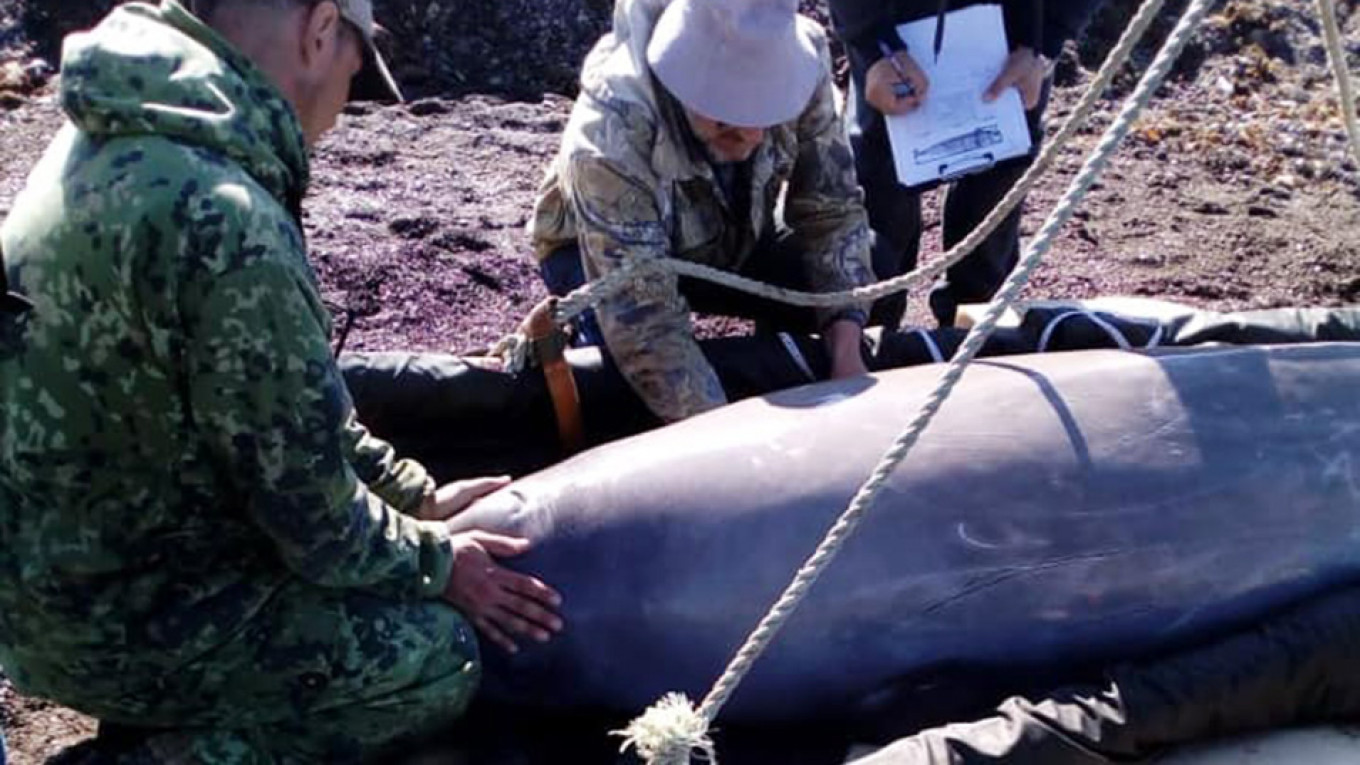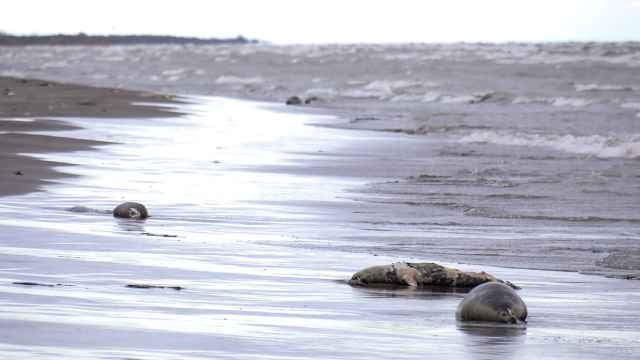Animal rights groups have raised the alarm over the release of the first group of whales from the so-called “whale prison” in Russia’s Far East, calling it “extremely unprofessional and dangerous.”
Russia released two orcas and six beluga whales back into the wild on Thursday, the first group of almost 100 whales whose detention since last year sparked an international outcry. The whales, caught last summer for export to marine parks or aquariums in China, were released into the Gulf of Sakhalin, part of their natural habitat off Russia's Pacific coast, a Russian oceanography research institute said in a statement.
“It is shocking,” Dmitry Lisitsyn, the head of Freedom for Killer Whales and Beluga Whales, told The Moscow Times on Friday. “Every single step in the release process went directly against experts’ advice that was given over the past few months.”
The move to begin releasing the whales into their natural habitat was announced last week during President Vladimir Putin's annual phone-in, which he uses to burnish his image among the Russian public.
“The call-in definitely sped up the process, but not in a good way and now it is being completely rushed,” Lisitsyn said.
According to the activist, who shared video showing the release on his Facebook page, mistakes were made during both the animals’ transport and their actual release.
“They were put in tight containers and driven along terrible roads in a practically immobilized state for almost seven days, which will have a very negative effect on the animals. It is extremely cruel to let the animals out now — they will be unprepared, traumatized and not adapted to the open sea,” he said.
Lisitsyn also scrutinized the decision to release the animals in batches, saying “belugas and orcas are extremely social animals, and releasing them in small groups will further lead to stress and confusion.”
A representative for Greenpeace told The Moscow Times that the release process has taken place “in complete secrecy,” with no input from independent experts.
“On the night of June 20, when trucks arrived at the 'whale prison' and the loading of animals began, none of the official institutions could comment on what was happening,” the representative said. “We very much hope that the whales will be able to cope with all the stress and survive in the ocean to which they have been so eager to return to. But we have a lot of concerns.”
Ilya Shestakov, the head of the Federal Agency for Fishery, told the state-run TASS news agency on Friday that the newly released animals were in good health.
“The killer whales have already traveled 140 kilometers from the point of release. The belugas have also left the point of release and are still in normal health [and] are moving around,” Shestakov said, citing data from satellite tags on the animals.
Lisitsyn, however, said that he was less optimistic.
“We of course hope they survive and reunite with their families, but after the way their release was handled, we just can’t be sure.”
A Message from The Moscow Times:
Dear readers,
We are facing unprecedented challenges. Russia's Prosecutor General's Office has designated The Moscow Times as an "undesirable" organization, criminalizing our work and putting our staff at risk of prosecution. This follows our earlier unjust labeling as a "foreign agent."
These actions are direct attempts to silence independent journalism in Russia. The authorities claim our work "discredits the decisions of the Russian leadership." We see things differently: we strive to provide accurate, unbiased reporting on Russia.
We, the journalists of The Moscow Times, refuse to be silenced. But to continue our work, we need your help.
Your support, no matter how small, makes a world of difference. If you can, please support us monthly starting from just $2. It's quick to set up, and every contribution makes a significant impact.
By supporting The Moscow Times, you're defending open, independent journalism in the face of repression. Thank you for standing with us.
Remind me later.






